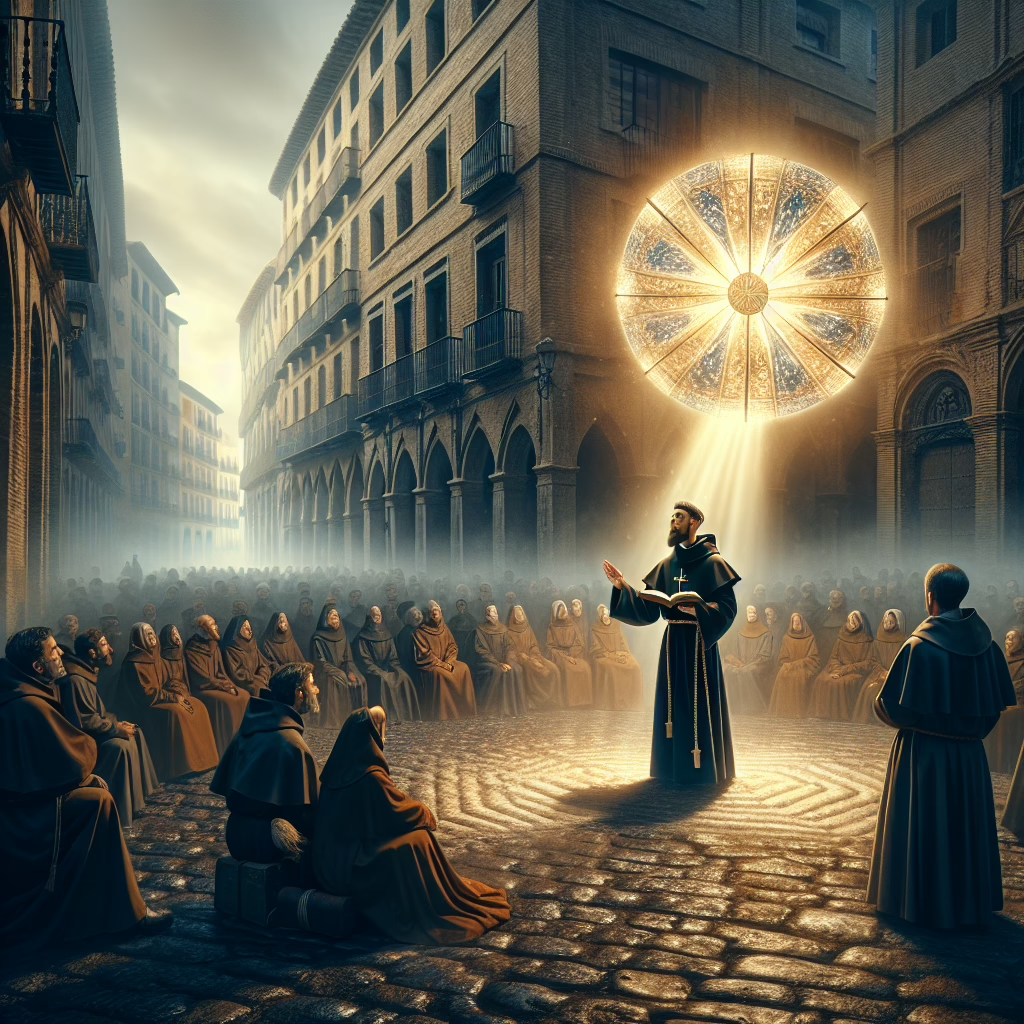The Legalistic Perception of Catholic Fasting Rules: A Catholic Apologetic
Introduction: Understanding the Debate
- In the arena of religious discourse, a common dialogue unfolds between Protestant objections and Catholic perspectives concerning the nature and application of fasting rules. While Protestants often critique these practices as burdensome and legalistic, Catholics view fasting as an integral tradition that enriches the spiritual journey.
- Fasting holds immense theological significance within the Catholic Church, emphasized in times of penance and repentance as a form of deepening one's faith.
- This article delves into key arguments central to the topic of Catholic fasting, providing clarity on its meaning and purpose.
- By examining these contrasting perspectives, this blog aims to unveil the theological depth and communal importance of Catholic fasting practices.
1. Objection: Fasting Rules are Legalistic and Burdensome
1.1 Reformation Background
- The history of the Protestant Reformation was marked by significant challenges to traditional Catholic practices, instigated by figures like Martin Luther and John Calvin. Among their critiques was the assertion that rituals such as fasting were part of a works-based piety, overshadowing the primacy of faith.
- This viewpoint also questioned the perceived legalism within the Church's rules, suggesting they imposed undue burden without enhancing spiritual intimacy.
- For additional insights into the Reformation's effect on religious customs, see Protestant Reformation.
1.2 Simplification of Worship
- For many Protestants, worship should prioritize faith and scripture, minimizing overly elaborate rituals that risk becoming mere tradition. Fasting was perceived as just such a ritual, lacking scriptural justification and leading to skepticism about its necessity.
- Scriptural objections reference Galatians 5:1, "For freedom Christ has set us free; stand firm therefore, and do not submit again to a yoke of slavery," and Colossians 2:16-17, "Let no one pass judgment on you in questions of food and drink…," which some interpret as a dismissal of institutionalized fasting practices.
2. Catholic Response: Fasting as a Spirited Discipline
2.1 Nature of Tradition
-
In contrast to Protestant critiques, Catholics perceive fasting as a venerable tradition rooted in apostolic teaching. It represents more than personal piety; it is a historical practice that unites believers in shared sacrifice.
-
The communal experience of fasting allows Catholics to express solidarity with one another, fostering a deeper sense of community within the Church.
"Do nothing without the bishop… Let there be one prayer in common, one supplication, one mind, one hope, in love and in joy undefiled."
— St. Ignatius of Antioch, Letter to the Ephesians -
This approach reflects the continuity of tradition upheld by the Church Fathers, affirming the historically continuous nature of fasting.
2.2 Integration of Faith and Works
- For Catholics, faith and works are inseparable aspects of a Christian life. The practice of fasting, grounded in scriptural precedent, is illustrative of this integration.
- Biblical examples abound, with Jesus fasting in the wilderness (Matthew 4:1-2) and apostles engaging in such disciplines. These actions underscore fasting as a spiritually enriching practice.
"For just as the body without the spirit is dead, so also faith without works is dead."
— James 2:26
3. Addressing Legalism Concerns: The Heart of Fasting
- Catholic theology places the intention behind fasting at the forefront, viewing it as a path to interior transformation rather than mere compliance. True fasting involves a movement of the heart toward God.
- Fasting highlights the role of grace, facilitating a deeper dependence on divine providence rather than one's strengths.
4. Cultural and Ecclesiastical Insights: Nurturing Community
- Fasting practices have historically evolved within the Church, adapting to various cultural contexts while maintaining core spiritual objectives.
- This evolution underscores the balance between personal spirituality and communal responsibility, nurturing a strong community identity among Catholics.
Conclusion: Embracing Fasting in Faith and Unity
- The dialogue between Protestant concerns about fasting and Catholic understanding highlights the richness of this spiritual discipline. While acknowledging objections of legalism, Catholics celebrate fasting as a practice that fosters personal growth and communal bonds.
- Fasting remains a powerful means of deepening faith and expressing unity within the community of believers.
- We encourage you to explore Catholic fasting practices further and embrace their potential for enriching your spiritual journey. For more, follow Catholic Fasting Practices.






Leave a Reply